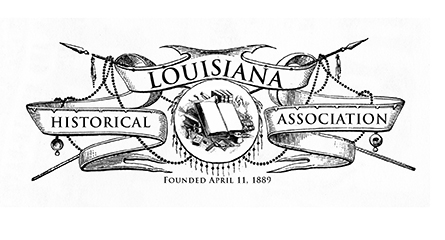The Louisiana Historical Association’s annual conference could dust off some existing notions about what constitutes history.
The conference, which begins at 3 p.m. today and continues Friday and Saturday, will be held at the Ramada Lafayette.
About 200 historians, from academics and graduate students to librarians and archivists, are expected to attend. Professors and college students, from the University of Louisiana at Lafayette, and other universities in Louisiana and other states, will present research.
Traditional subjects, like the Battle of New Orleans and Reconstruction after the Civil War, will be explored. So too will topics unlikely found in many history textbooks, such as horse racing and professional wrestling,
The conference will include presentations and sessions about:
• the 300th anniversary of the founding of New Orleans;
• women and their societal influence in antebellum Louisiana;
• politics and social change after World War II;
• slavery;
• free people of color;
• digital history projects and archiving;
• industry and the environment in the 20th century; and
• recent events such as Hurricane Katrina, and the BP oil spill.
“It’s a program that’s centered predominately on the history of our state, but the LHA is very much an organization of historians of many different kinds,” said Dr. Mary Farmer-Kaiser, dean of the UL Lafayette Graduate School and a history professor.
Farmer-Kaiser is president of the Louisiana Historical Association, which has about 1,000 members from around the nation.
The association was founded in 1889 in New Orleans, by Confederate veterans of the Civil War. In 1958, it was reorganized to focus on Louisiana history, and began hosting an annual conference.
In 1960, the LHA began publishing the "Louisiana History" journal. It is published four times a year by the Center for Louisiana Studies at UL Lafayette. UL Lafayette history professor Dr. Michael Martin, who is director of the University’s Center for Louisiana Studies, is the journal’s managing editor.
Dr. James Wilson, a history professor who is the assistant director of the Center for Louisiana Studies, is secretary/treasurer of the Louisiana Historical Association.
“The LHA has always been really important to the Center for Louisiana Studies and the history department at UL, and historians at the university have always been important to the LHA,” Farmer-Kaiser said.
Dr. Amos Simpson, a longtime professor of history at UL Lafayette who died last year at age 89, will be honored at the conference.
Simpson, who once served as president of the LHA, began teaching at UL Lafayette in 1956. He chaired the history department from 1966-1971, and was a co-founder of the Center for Louisiana Studies in 1971. Friends and former colleagues will share memories of Simpson, and discuss his work during a session entitled “Amos Edwin Simpson: Scholar, Professor, Mentor.”
A research grant established in Simpson’s name will be awarded at the conference.
The conference also will include a meeting of the student chapter of Phi Alpha Theta, a national history honor society.
To learn more about the Louisiana Historical Association, visit lahistory.org.
